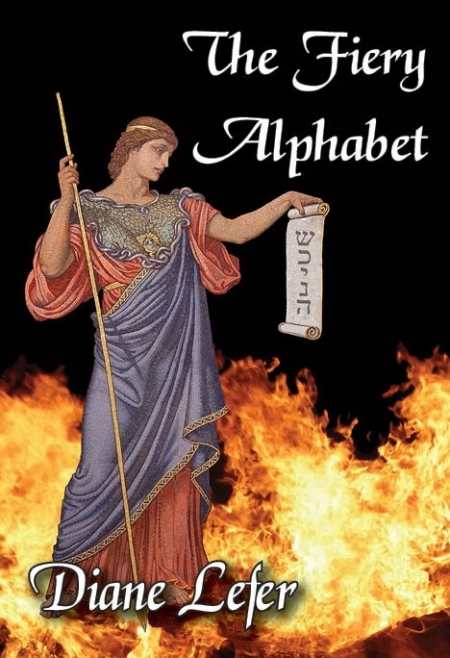The Fiery Alphabet
This complex and thoroughly satisfying book tells of a time when womanhood was repressed, yet the repository of wisdom and secret knowledge gave them dignity.
Diane Lefer has dipped her pen in fire to create the story of a brilliant, impetuous, yet strangely naïve 18th century Roman girl whose mysterious antecedents are hidden from her until life, with its adventures, torments, and inevitable losses, reveals itself to her in all its pain, folly, and blazing beauty.
Daniela Messo, a mathematical and intellectual prodigy raised to be a freethinker and named for a mother she never knew, grows up on her father’s secluded estate, unaware of the suffering and degradation that exists just outside the walls of her enclosure. The young girl’s uncanny gifts, though a joy to her father, put her at risk of being scrutinized by the Church’s inquisitors, who hold life and death power over any that might pose a threat—especially gifted women, who are all too easily branded “witch” in 18th century Rome.
The unannounced arrival of Giuseppe Balsamo, a slight, disheveled young man of unknown origin, turns Daniela’s world inside out and becomes the catalyst for the young girl’s awakening, as the two escape the confines of the Messo estate and cross Europe, using their wits to swindle the unwary. But who is this strange, salvation-addicted Balsamo? Obviously an alchemist, Balsamo is bent on discovering the secrets of Daniela’s past, which he believes hold the key to the hidden knowledge of a long-dead Jewish mystic—knowledge that could lead to true salvation. But Daniela, having lived too long in the world of the mind, seeks not more philosophy but the lover’s touch that will allow her womanhood to fully blossom.
Daniela’s arduous journey to find her true home in the world brings her into contact with the most elevated and the most debased in human society, leading to some stunning realizations on the roots of men’s lack of esteem for women. In ancient times, a people only had the right to be considered human through their relationship with a god; if conquered in war, it meant that a people’s god had deserted them or died, and it was then considered proper and right to treat them as chattel. And women had been robbed of their goddess. “‘The Queen of Heaven,’ I whispered. Anne understood it in that moment just as I did: that we needed our Goddess, whether we believed in Her or no.”
Lefer has written a complex and thoroughly satisfying book, a work that, above all, is about the power of words to bring life or death, to create walls that imprison body and mind, or to break those walls down and open the gates to freedom. It is also the story of how, in a time when womanhood was suspect and repressed, it was, nevertheless, as Balsamo guessed and Daniela came to know, the repository of wisdom and secret knowledge.
Reviewed by
Kristine Morris
Disclosure: This article is not an endorsement, but a review. The publisher of this book provided free copies of the book to have their book reviewed by a professional reviewer. No fee was paid by the publisher for this review. Foreword Reviews only recommends books that we love. Foreword Magazine, Inc. is disclosing this in accordance with the Federal Trade Commission’s 16 CFR, Part 255.

